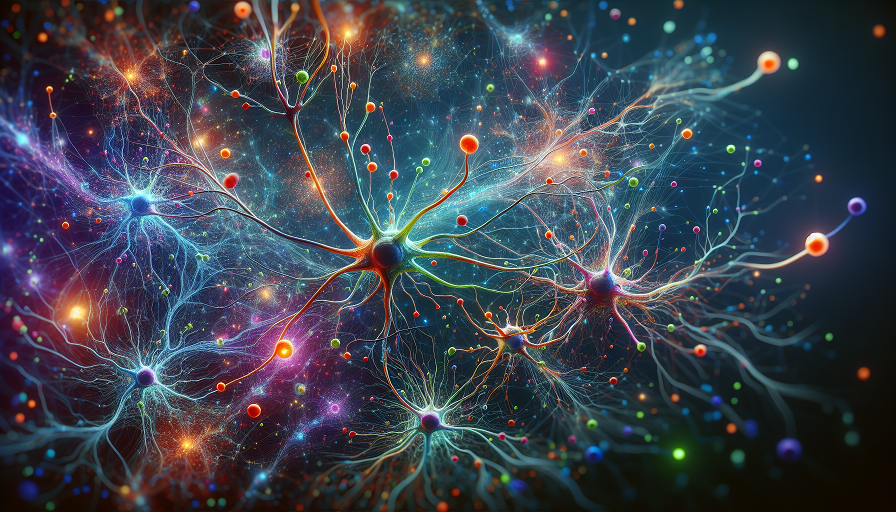
Managing ADHD can feel like juggling flaming torches while riding a unicycle. The challenge of balancing focus, hyperactivity, and stress often calls for creative solutions. Ashwagandha, a popular adaptogen in Ayurvedic medicine, has been gaining attention for its potential to support those with ADHD. By modulating stress hormones and promoting calm focus, this ancient herb may offer benefits for managing the symptoms of ADHD.
Ashwagandha’s Role in Modulating Stress and Focus
One of the hallmark challenges of ADHD is difficulty regulating focus and emotions, often exacerbated by high levels of stress. Chronic stress drives the release of cortisol, a hormone that can impair executive function—the brain’s ability to prioritize, organize, and focus on tasks. For individuals with ADHD, this can make an already tricky balancing act even more challenging.
Ashwagandha works as an adaptogen, helping the body regulate stress responses. Compounds in ashwagandha, particularly withanolides, interact with the hypothalamic-pituitary-adrenal (HPA) axis to balance cortisol production. This helps create a calmer mental environment, making it easier to focus and manage emotions.
The herb also supports neurotransmitters like serotonin and dopamine, which play key roles in mood regulation and reward processing. For individuals with ADHD, these neurotransmitters often function inefficiently, leading to impulsivity and difficulty staying on task. Ashwagandha’s ability to enhance neurotransmitter activity may help improve focus and reduce hyperactivity.
Additionally, ashwagandha is known for its ability to improve sleep quality. Poor sleep is a common issue for those with ADHD, and it only worsens symptoms like inattention and emotional dysregulation. By promoting relaxation and supporting a healthy sleep cycle, ashwagandha may indirectly enhance cognitive performance and emotional stability.
Research on Improved Attention and Hyperactivity Management
Scientific studies exploring the effects of ashwagandha on ADHD symptoms are still emerging, but the existing research is promising.
A randomized, double-blind, placebo-controlled study published in Complementary Therapies in Medicine evaluated the effects of ashwagandha in children with ADHD. Over eight weeks, participants who received ashwagandha showed significant improvements in attention span, impulse control, and hyperactivity compared to the placebo group. The researchers attributed these effects to ashwagandha’s ability to regulate cortisol and enhance overall brain function.
Another study in The Journal of Clinical Psychiatry explored ashwagandha’s impact on stress and anxiety levels, which are often elevated in individuals with ADHD. Participants reported reduced stress, better sleep, and improved cognitive function after supplementation. These benefits align closely with the needs of those managing ADHD, where stress and poor sleep can worsen symptoms.
Beyond human studies, animal research has highlighted ashwagandha’s neuroprotective properties. A study in Frontiers in Pharmacology found that withanolides in ashwagandha improved cognitive flexibility and reduced hyperactivity in rat models of ADHD. While not directly translatable, these findings support the idea that ashwagandha influences pathways relevant to ADHD management.
If you’re considering ashwagandha for ADHD support, here are a few practical tips:
- Choose the Right Form: Ashwagandha is available as powders, capsules, and tinctures. Look for high-quality products standardized for withanolides.
- Start with a Small Dose: Typical starting doses range from 300–500 mg per day. Gradually increase as needed.
- Be Consistent: Benefits often appear after several weeks of regular use, so patience is key.
- Combine with a Routine: Pair ashwagandha supplementation with behavioral strategies, mindfulness practices, and physical activity for best results.
- Consult a Healthcare Professional: Always talk to your doctor, especially if you’re managing medications or specific health conditions.
Ashwagandha’s ability to regulate stress, support neurotransmitter activity, and promote better sleep makes it a compelling option for those managing ADHD symptoms. While not a standalone treatment, it can complement other strategies to improve attention, reduce hyperactivity, and enhance overall emotional stability. For those seeking a natural ally in the ADHD toolkit, ashwagandha may be worth exploring.

